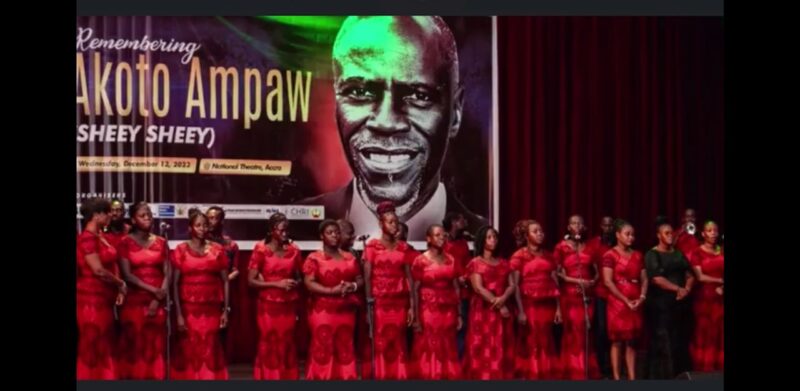Seventy-five to eighty percent (75-80%) of Ghanaians will vote in elections to choose a president and legislators, but only 5% or less will join a demonstration, no matter how noble or urgent the cause for preserving our democracy and improving our collective and individual economic circumstances.
Voting and protests are both fundamental constitutional rights and civic duties of citizens. The Center for Democratic Development (CDD)’s Prof. Henry Kwesi Prempeh is worried about this situation because democracy will work and deliver dividends only if a country has active citizens.
He demonstrates how this is such a dereliction of basic duty as he condemns the African politician’s revulsion for citizens’ protests—a tool for accountability. He also criticizes the constant resort to “heavy-handed policing and a complicit judiciary” to stifle lawful protests. He fears the consequences if citizens continue to cede this civic space to political parties, which can easily mobilize thousands for demonstrations and counter-demonstrations that serve only cheap propaganda.
Good governance comes to citizens who are alive to their civic responsibilities beyond waiting to vote every four years.
I think Prof. Kwesi Prempeh was surprised when his investor-friend sought assurance at the start of the financial crisis that we had a Ghanaian solution to a Sri Lankan-style crisis.
In Sri Lanka, thousands poured into the streets, defied emergency orders, and raised their voices until the president checked out of office. Faced with a similar situation, we looked on and left a handful of elderly citizens to protest in the sun at the premises of the Finance Ministry.

Those we voted for, those we hired to manage the economy, ignored them—until a former Chief Justice joined their protest over the loss of their life savings.
I watched the audience—scholars and friends of Akoto Ampaw—at his first anniversary memorial lecture and nodded in agreement as the CDD boss spoke about how our wasteful and selfish politicians take us all for granted while they loot the public purse.
The economy has suffered historic damage. People need as much as 17 cedis for a single US dollar, and a ball of kenkey, which sold for GH₵1 only a few years ago, is now GH₵5 or more in a country where the daily minimum wage is GH₵18. Many, including the middle class, have been driven into poverty and extreme poverty, yet listen to what takes center stage at the campaign rallies.
I sat there, thinking about how Akoto Ampaw never gave up rallying people to be active citizens despite this typical nonchalance or partisan-induced disinterest. We admit the irreparable damage the NDC-NPP duopoly is doing to our beloved country, yet we will not give smaller parties and independent candidates the chance to attempt some change. I have voted for John Kufuor, Atta Mills, Papa Kwesi Nduom, Zanetor Rawlings, Ursula Owusu-Ekuful, and Bridget Dzobgbenuku.
It is encouraging to watch Alan Kyerematen and his Movement for Change mobilize decent, orderly crowds. His message has been focused on the economy and what he calls the Great Transformational Plan. It is refreshing to see him pick a young man with the clear intention of preparing the youth to take over. Yes, he went shopping for youth. Learning that he approached the iconoclastic, conscientious protestor for an overhaul of this sham of a democratic structure hijacked by the duopoly is a great indication of the kind of reform he seeks for Ghana.
Oliver Barker-Vormawor does not only have an impressive CV; he is far better read, deeply grounded in life-transforming philosophies and politics, and more competent than some of those parading in high public office—and certainly more qualified than some jokers seeking to be president.
May the Anthony Akoto Ampaw Memorial Lectures become more than an annual platform to raise conscious and conscientious citizens who will assert their Chapter 5 rights to public protests in our quest for good governance and prosperity. May Busumuru Kofi Annan’s words ring deep and benefit Ghana. He said, “If there’s enough noise, enough pressure, enough organization, the leaders will follow the people. If the people are apathetic, they don’t vote; they are leaving the field open to the politicians to do what they want.”
That is My Take.
Samson Lardy Anyenini
October 26, 2024
Latest Stories
-
US House passes Trump’s ‘big, beautiful’ tax and spending bill
2 minutes -
Nigeria’s ruling party endorses President Tinubu for 2027 re-election
13 minutes -
‘We need a law to stop abuse of mineral royalties’ – Chamber of Mines boss
28 minutes -
‘Mineral royalties stay in Accra while mining communities rot’ – Chamber of Mines boss
60 minutes -
‘But for mining, Ghana wouldn’t be here today’ – Chamber of Mines CEO laments neglect
2 hours -
It’s not mining company’s job to build skyscrapers’ – Chamber boss on community development
2 hours -
Tumu Community Cup: Soccer Babies to face Nabulo in opener as 24 Hours draw Tarsor
2 hours -
US Congress moves to block California ban on petrol-only cars
3 hours -
Modric to leave Real Madrid after Club World Cup
3 hours -
Four dead, several missing in record Australia flooding
5 hours -
Kid Cudi testifies at Diddy trial about Molotov cocktail attack
5 hours -
‘We’re losing to Kenya and Ivory Coast because of bad tax policy’ – Acting Chamber of Mines boss
5 hours -
Police arrest suspect in gruesome murder of University of Education lecturer in Winneba
5 hours -
Joy News gets results: Nhyiaeso MP constructs a 33-unit classroom block for State Experimental School in Kumasi
6 hours -
‘New taxes could collapse mining sector’ – Chamber of Mines warns
6 hours

